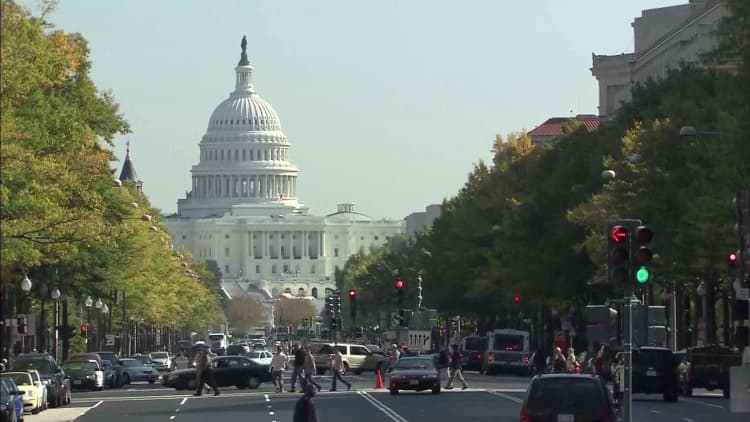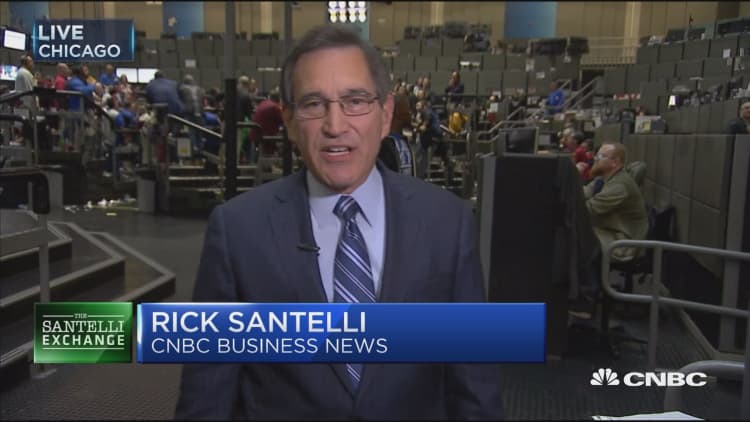
Few think that Congress won't at some point raise the debt ceiling, which is a good thing, because the consequences of not doing so could be disastrous.
In fact, one economist said the scenario would be worse than the lowest point of the financial crisis.
"Failure to raise the debt limit would likely be more catastrophic to the economy than the 2008 failure of Lehman Brothers and would erase many of the gains of the subsequent recovery," said Beth Ann Bovino, chief economist at S&P Global Ratings.
A failure to raise the debt ceiling would trigger a government shutdown, which in turn would lop $6.5 billion from the economy for each week it's allowed to continue, said Bovino, who cited a "butterfly effect" that would ripple through various activities.
"A disruption in government spending means no government paychecks to spend at the mall, lost business and revenue to private contractors, lost sales at retail shops, particularly those that circle now-closed national parks, and less tax revenue for Uncle Sam," she said in a note. "That means less economic activity and fewer jobs."
All of that could cascade through to a stock market that has seen a wave of volatility lately amid increasing expectations for a pullback.
"With markets somewhat jittery about a possible selective default of the U.S. sovereign, worries of a shutdown threat only adds to their concerns," Bovino said. "The shutdown and the looming debt ceiling combined could significantly hurt business and consumer sentiment, as well as the overall economy."
The U.S. government actually surpassed the old debt ceiling several months ago. But the Treasury Department has used a number of maneuvers to keep the government running and allow the country to pay its bills.
However, the limit on what can be done expires soon. Treasury Secretary Steve Mnuchin has set the final date as Sept. 29, though it's believed the government could continue to operate for a few more weeks after that date.
Experts consider the odds low but not impossible that there will be no new agreement to continue to allow Treasury to borrow to keep operations running. Should no agreement be reached, the government would shut down and possibly have to default on debts.
"We anticipate the debt ceiling will be suspended until a later date," Dana Peterson, North America economist with Citigroup, said in a note. "Raising the ceiling is an option, but is less likely given the partisan atmosphere, in our view. We assign a very low probability of default. However, both the Treasury and the Fed have options to forestall the 'hard' default date."
Still, S&P's Bovino believes a warning is necessary.
The U.S. actually surpassed its official debt limit at the end of 2012, but it has been suspended and reset multiple times over the years, most recently on March 15. The national debt currently is $19.84 trillion, compared to the $19.81 trillion limit.
Congress is on its summer break and will take up the matter after Labor Day.
WATCH: Debt ceiling issues rise, Treasury yields fall



